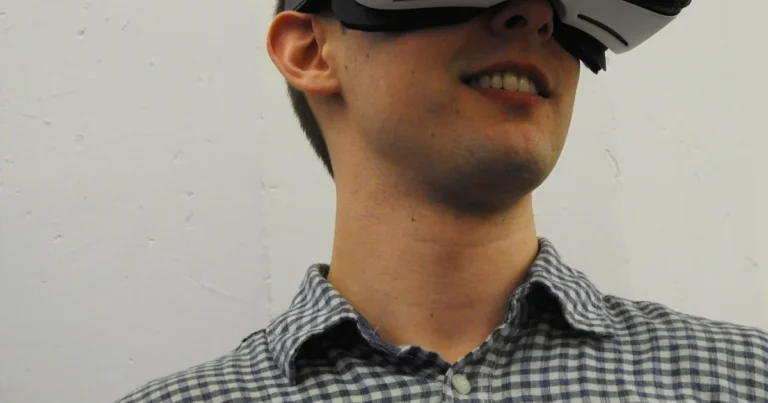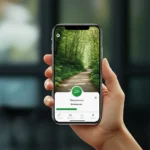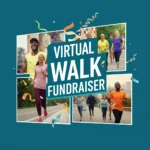Support our educational content for free when you purchase through links on our site. Learn more
How Do Virtual Walks Work? 12 Insider Secrets Revealed! 🚶♂️ (2025)
Imagine joining thousands of walkers from around the globe—each stepping out on their own streets, trails, or treadmills—but all connected by one shared goal. Virtual walks have exploded in popularity, transforming how we exercise, fundraise, and build community without ever gathering in one place. But how exactly do these digital strolls work, and what makes them so effective?
In this deep dive, the expert team at Walkathon Virtual™ pulls back the curtain on the tech, the motivation, and the magic behind virtual walks. From syncing your favorite fitness app to fundraising tips that actually work, we’ll share 12 insider secrets that make virtual walking events tick. Curious about how 3D virtual walkthroughs fit into the picture? Or wondering how to pick the perfect platform for your next event? Stick around—we’ve got you covered.
Key Takeaways
- Virtual walks blend real-world movement with digital tracking and community connection, allowing participants to walk anytime, anywhere.
- Technology like GPS apps and wearables sync seamlessly with event platforms such as Walkathon Virtual™ and CauseVox to log your miles automatically.
- Virtual walks offer unmatched accessibility and flexibility, breaking down barriers for all ages and abilities.
- They’re powerful fundraising tools that reduce costs and expand reach globally.
- Multiple event types exist, from charity fundraisers to immersive 3D tours, catering to diverse interests.
- Choosing the right platform and gear can boost your experience and success—we share expert recommendations later in the article.
Ready to step into the future of walking? Let’s get moving!
Table of Contents
- ⚡️ Quick Tips and Facts: Your Virtual Walk Cheat Sheet
- 🚶♀️ The Digital Footpath: A Brief History of Virtual Walking Events
- 🤔 What Exactly Are Virtual Walks? Unpacking the Concept
- ⚙️ How Do Virtual Walks Actually Work? The Mechanics Unpacked
- 🌟 Why Go Virtual? The Irresistible Advantages of Digital Footpaths
- 🌍 Accessibility for All: Breaking Down Barriers to Participation
- 🌐 Global Reach, Local Impact: Connecting Communities Worldwide
- 🗓️ Flexibility is Key: Your Walk, Your Way, On Your Schedule
- ❤️ Boosting Motivation and Wellness: The Health Perks of Online Fitness Challenges
- 💰 Fundraising Powerhouse: Making a Difference Digitally with Virtual Races
- 🌈 Types of Virtual Walks: Finding Your Perfect Pavement (or Trail!)
- 💻 Choosing Your Virtual Walk Platform: Where to Publish and Integrate Your Digital Journey
- ✨ Beyond the Basic Stroll: The Magic of 3D Virtual Walkthroughs and Immersive Experiences
- ✅ Getting Started: Your Step-by-Step Guide to a Successful Virtual Walk
- ❌ Common Pitfalls to Avoid: Navigating Your Virtual Journey Smoothly
- 💖 Success Stories & Inspiring Journeys: Real People, Real Impact
- 🎉 Conclusion: The Path Forward for Virtual Walking and Digital Wellness
- 📚 Recommended Links: Your Next Steps on the Virtual Trail
- ❓ FAQ: Your Burning Questions About Virtual Walks, Answered!
- 🔗 Reference Links: Our Sources, Your Trust
Here is the main body content for your blog post, crafted by the expert team at Walkathon Virtual™.
⚡️ Quick Tips and Facts: Your Virtual Walk Cheat Sheet
Pressed for time? We get it! You’re ready to lace up your sneakers and hit the digital pavement. Here’s the lowdown on virtual walks in a nutshell. Think of this as your pre-walk stretch—essential and straight to the point!
| Fact Category | The Nitty-Gritty Details |
|---|---|
| What is it? | A virtual walk is an organized event you complete in your own time and location. You walk a set distance, track your progress with an app, and connect with a community online. |
| How does it work? | You register online, connect a fitness app (like Strava or Fitbit) to the event platform, and walk wherever you like—your neighborhood, a park, or even a treadmill! |
| Why do it? | Flexibility! No travel, no crowds, no 6 AM start times (unless you want one!). Plus, they’re fantastic for fundraising and connecting with people globally. |
| Who can join? | Everyone! That’s the beauty of it. All ages, fitness levels, and abilities can participate. It’s a truly inclusive experience. Check out our resources on Accessibility in Walkathons. |
| Tech Needed? | Just a smartphone is usually enough. A fitness tracker or smartwatch (like a Garmin or Apple Watch) enhances the experience but isn’t always mandatory. |
| Key Benefit? | They break down geographical barriers, allowing you to support a cause or join a fitness challenge from anywhere in the world. 🌍 |
🚶♀️ The Digital Footpath: A Brief History of Virtual Walking Events
Ever wonder how this whole “walking together, but separately” thing started? It might seem like a recent trend, but the concept has been simmering for a while. Early versions were simple, relying on the honor system for participants to report their mileage. But then, two things happened: technology and necessity.
The explosion of smartphones, GPS, and wearable fitness trackers in the 2010s laid the digital groundwork. Suddenly, tracking your every step, sharing your route, and proving you completed that 5K became incredibly easy.
But the real catalyst? The COVID-19 pandemic. As the world went into lockdown, traditional in-person events were canceled left and right. For many organizations, especially non-profits that rely on fundraising walks, this was a potential disaster. The American Foundation for Suicide Prevention (AFSP), for example, had to pivot their Out of the Darkness Campus Walk to a virtual format when their university canceled events with over 100 attendees. This shift wasn’t just a stopgap; it was a revelation. It proved that “hope can walk anywhere.” Organizations discovered they could not only survive but thrive, reaching a wider, more diverse audience than ever before. It was a statement to the world that “even in the face of a global pandemic, suicide prevention will not stop.”
🤔 What Exactly Are Virtual Walks? Unpacking the Concept
So, let’s get down to brass tacks. How do virtual walks work? At its core, a virtual walk is a real walk, just with a digital twist. You still put one foot in front of the other, you still sweat, and you still get that amazing feeling of accomplishment. The “virtual” part refers to the shared experience and community, which happens online.
The Lustgarten Foundation puts it beautifully in the video above: “Simply put, a VIRTUAL WALK is a symbolic, online fundraising event.” Participants walk on their own or with friends on the same day, but in different places, creating a “unified effort.”
But the term “virtual walk” can mean a few different things, which can be confusing! Let’s break it down:
- The Fitness Event (Our Specialty!): This is the most common type. It’s a peer-to-peer fundraising event where you commit to a physical challenge (like walking 10km) within a set timeframe. You sign up, raise money for a cause, and complete the distance on your own terms.
- The Immersive Tour: This is a completely different beast! This type of virtual walk is a simulation of a real place, often used in real estate or tourism. Using 3D models or 360° photos, it allows you to “walk” through a property or a museum from your computer. As one agency notes, “The virtual walk provides a much more realistic representation of the space.”
Here at Walkathon Virtual™, we focus on the first kind—the one that gets your heart pumping and makes a difference in the world!
⚙️ How Do Virtual Walks Actually Work? The Mechanics Unpacked
Alright, you’re signed up and ready to go. But how does your stroll around the block get counted towards that massive Global Walkathon Event? It’s simpler than you think!
📱 The Tech Behind the Trek: Apps, GPS, and Wearables
The magic happens through the seamless connection between your favorite fitness gadgets and the event platform.
- Registration: First, you sign up on a platform like CauseVox or, ahem, yours truly, Walkathon Virtual™. During this process, you’ll typically be prompted to link your fitness tracking app.
- Tracking: You use a GPS-enabled app on your phone or a wearable to record your walk. The most popular choices include:
- Strava: The social network for athletes. Great for its community features and detailed analytics.
- MapMyRun by Under Armour: A solid, reliable choice for tracking routes and performance.
- Wearable-Specific Apps: If you have a Fitbit, Garmin, or Apple Watch, their native apps (Apple Health, Garmin Connect) are your go-to.
- Syncing: Once you finish your walk and save it, the data (distance, time) is automatically sent to the virtual event platform. Poof! Your miles are logged, and you can see your progress on the event leaderboard.
🤝 Solo Strolls vs. Group Gallivants: Different Participation Models
Are you a lone wolf or part of a pack? Virtual walks cater to both!
- ✅ Solo Participation: This is the ultimate in flexibility. You walk when you want, where you want, at your own pace. It’s your personal journey.
- ✅ Team Participation: This is where the magic of community really shines. You can form a team with friends, family, or colleagues from all over the world. You might have a collective mileage goal, or just be there to cheer each other on in a dedicated Facebook Group or team chat. The AFSP’s virtual walk, for instance, saw a team of 52 students participate “together” from different locations.
⏱️ Setting Your Pace: Self-Paced vs. Timed Virtual Events
Not all virtual events are structured the same way. The timing can vary significantly.
- The “Do It In a Day” Event: Many events have a specific “race day,” where everyone is encouraged to complete their walk within the same 24-hour period to create a sense of unity.
- The “Challenge Window” Event: More commonly, you’ll have a longer timeframe—a week, two weeks, or even a month—to complete the distance. This is perfect for fitting the challenge around a busy schedule or for tackling longer distances, like a virtual “Walk the State” event.
🌟 Why Go Virtual? The Irresistible Advantages of Digital Footpaths
We’ve been in this game a long time, and let us tell you, the shift to virtual has been a game-changer. It’s not just a substitute for in-person events; it’s a whole new, powerful way to get active and make an impact.
🌍 Accessibility for All: Breaking Down Barriers to Participation
This is a big one for us. Traditional races can have barriers: intimidating crowds, challenging terrain, or rigid start times. Virtual walks remove them all. You choose your own route—a flat, paved path, a familiar neighborhood loop, or a treadmill in your living room. This creates a truly welcoming environment for people of all abilities, ages, and fitness levels. It’s a core reason we’re so passionate about Accessibility in Walkathons.
🌐 Global Reach, Local Impact: Connecting Communities Worldwide
With a virtual walk, your community isn’t limited by geography. Your cousin in another country, your old college roommate, your entire remote team—they can all join in. This global reach is a massive advantage, allowing you to connect with a broader audience and amplify your message. You can be part of a massive Global Walkathon Event without ever leaving your hometown.
🗓️ Flexibility is Key: Your Walk, Your Way, On Your Schedule
Life is busy. We know. The convenience of a virtual walk is a huge selling point. No need to wake up at the crack of dawn, fight for parking, or stand in a long line for the restroom. You can walk at sunrise, on your lunch break, or under the stars. It fits your schedule.
❤️ Boosting Motivation and Wellness: The Health Perks of Online Fitness Challenges
Having a goal is a powerful motivator. Signing up for a virtual walk gives you a tangible target to work towards, which can be just the push you need to get moving. The benefits of walking are immense, from improved cardiovascular health to reduced stress. Dive deeper into the Health Benefits of Walkathons on our blog! These events encourage physical and mental well-being, providing a healthy outlet and a sense of connection.
💰 Fundraising Powerhouse: Making a Difference Digitally with Virtual Races
Let’s talk impact. Virtual walks are incredibly effective for fundraising. Why?
- Reduced Costs: Organizers save a ton of money on venue rentals, permits, and insurance. For charities like the Lustgarten Foundation, this means that “100% of donations go directly to pancreatic cancer research.”
- Peer-to-Peer Power: Platforms like CauseVox make it ridiculously easy for participants to set up personal fundraising pages and share them with their networks. This turns every walker into a powerful advocate for the cause. Need some inspiration? Check out our Fundraising Ideas.
🌈 Types of Virtual Walks: Finding Your Perfect Pavement (or Trail!)
Just like there are different flavors of ice cream, there are different types of virtual walks. Finding the right one for you is key to a great experience.
🎗️ Charity & Fundraising Walks: Striding for a Cause
This is the most popular category. From large-scale events like the AFSP’s Out of the Darkness walks to local community fundraisers, these events are all about making a difference. You raise money, you raise awareness, and you walk in solidarity with others who care about the same cause.
🏆 Fitness Challenges & Personal Goals: Your Journey, Your Triumph
These walks are focused on achieving a personal fitness goal. Maybe you want to complete your first 10K, or maybe you’re part of a challenge to collectively walk the distance across a state, like Parkinson’s Nebraska’s “Walk the State” event. The prize here is the accomplishment itself (though a cool medal doesn’t hurt!).
🗺️ Experiential & Immersive Journeys: Beyond the Treadmill
This is where we circle back to that other definition of “virtual walk.” While not fitness-based, these are worth knowing about! They use technology to transport you somewhere else.
- 3D Virtual Walks: These create a digital model of a space, allowing you to move through it and change your perspective. It’s considered a “virtual walk in the full sense of the word.”
- 360° Panoramic Walks: These stitch photos together to let you look around a static point. You can “move through the photo, but not through space.”
🏢 Corporate Wellness Programs: Team Building, One Step at a Time
Companies are increasingly using virtual walks as a way to boost employee health and morale. It’s a fantastic way to encourage friendly competition between departments, promote a healthy lifestyle, and connect remote teams in a fun, active way.
💻 Choosing Your Virtual Walk Platform: Where to Publish and Integrate Your Digital Journey
The platform is the digital headquarters for your event. It’s where you register, track progress, and connect with the community. For organizers, choosing the right one is crucial.
🚀 Dedicated Virtual Event Platforms (e.g., Walkathon Virtual™, RunSignup)
These are the all-in-one solutions. Platforms like RunSignup and CauseVox are built specifically for endurance and fundraising events. They handle registration, payment processing, fundraising pages, and results tracking. A key feature to look for is an “Activity Metric” that can track various exercises, from miles walked to minutes of yoga.
🏃♀️ Fitness Tracking Apps (e.g., Strava, MapMyRun, Apple Health)
These are the tools of the trade for participants. The best event platforms offer seamless integration with the most popular apps, so your activities sync automatically without any manual data entry.
📣 Social Media Integration: Spreading the Word and Engaging Participants
Social media is the lifeblood of a virtual walk. It’s where the community comes alive!
- Hashtags: A unique event hashtag (like #SHEROWALK or #DoTheVirtualWalk) is essential for curating user-generated content.
- Facebook Groups: Creating a dedicated group for participants is a fantastic way to build community, share tips, and post updates.
- Live Events: Hosting a kickoff or closing ceremony on Facebook Live can bring everyone together in real-time.
- Promotion: Social media is also your primary tool for Event Promotion, allowing you to reach a massive audience.
🔗 Website & CRM Integration: Seamless Management for Organizers
For the organizers out there, look for a platform that can be easily integrated into your existing website or shared as a standalone link. Good platforms should also integrate with your Customer Relationship Management (CRM) software for efficient donor and fundraiser management.
✨ Beyond the Basic Stroll: The Magic of 3D Virtual Walkthroughs and Immersive Experiences
While our passion is getting you moving, we can’t help but geek out over the other kind of virtual walk. The technology is just so cool!
🏛️ Exploring Iconic Locations from Your Living Room
Ever wanted to wander through the Louvre or explore the Colosseum without the crowds? Immersive virtual tours make it possible. Using high-resolution 3D modeling and panoramic photography, companies can create stunningly realistic digital twins of real-world locations. It’s a powerful tool for tourism, education, and, of course, real estate.
🎮 Enhancing Engagement with Virtual Reality (VR) and Augmented Reality (AR)
This is where things get really futuristic.
- Virtual Reality (VR): With a headset like the Meta Quest, you can be fully immersed in a digital environment. Imagine “walking” the Great Wall of China from your treadmill!
- Augmented Reality (AR): AR overlays digital information onto the real world. Think of an app that shows you historical facts about buildings as you walk past them, or a virtual pacer running alongside you.
🔮 The Future of Virtual Exploration: What’s Next on the Digital Horizon?
What happens when these two worlds—fitness events and immersive tours—collide? We’re already seeing glimpses of it! Apps like Zwift let you run and cycle through virtual worlds. We predict the future of virtual walks will involve more gamification, AR challenges, and maybe even holographic teammates cheering you on. The possibilities are endless!
✅ Getting Started: Your Step-by-Step Guide to a Successful Virtual Walk
Feeling inspired? Awesome! Here’s how to go from the couch to the virtual finish line.
🎯 Setting Your Goals: What Do You Want to Achieve with Your Virtual Trek?
First, know your “why.” Are you doing this to…
- Support a cause you’re passionate about?
- Kickstart a new fitness routine?
- Connect with friends and family in a new way?
- Earn a really cool medal? (No shame in that!)
Your “why” will be your ultimate motivation when the couch feels extra comfy.
🗓️ Choosing Your Event: Solo, Team, or Organized Virtual Race?
Browse upcoming events on platforms like ours or RunSignup. Look for an event that aligns with your goals. Consider the distance, the timeframe, and the cause. Decide if you want to fly solo or rally a team. Remember, forming a team is a great way to boost encouragement and fundraising.
👟 Gear Up! Essential Tech and Comfort for Your Virtual Journey
You don’t need a lot of fancy equipment, but a few key items will make your walk much more enjoyable.
- Footwear: This is non-negotiable. Invest in a good pair of walking or running shoes. Your feet will thank you. Brands like Brooks and Hoka are team favorites here at Walkathon Virtual™.
- Tech: A smartphone is essential for tracking. A fitness watch is a fantastic upgrade for at-a-glance stats and heart rate monitoring.
- Comfort: Think moisture-wicking socks (we love Bombas and Feetures), comfortable apparel, and a way to carry your phone and keys.
👉 Shop Essential Walking Gear on:
- Walking Shoes: Amazon | Walmart
- Fitness Trackers: Amazon | Walmart
- Moisture-Wicking Socks: Amazon | Bombas Official Website
🔥 Staying Motivated: Tips from the Walkathon Virtual™ Pros
Our team has walked thousands of virtual miles. Here are our top tips for staying on track:
- Break It Down: A 50-mile challenge can feel daunting. But 2.5 miles a day for 20 days? Totally doable.
- Find Your Soundtrack: Create an epic playlist or get lost in a great podcast or audiobook.
- Share Your Journey: Post updates on social media using the event hashtag. The encouragement you get back is a huge boost!
- Remember Your “Why”: On tough days, reconnect with your reason for signing up. If you’re fundraising, look at your donor list and remember the people who are supporting you and the cause.
❌ Common Pitfalls to Avoid: Navigating Your Virtual Journey Smoothly
Even the most seasoned virtual walkers can stumble. Here are a few common trip-ups and how to sidestep them.
- The “I’ll Do It Later” Trap: Procrastination is the enemy! With a long challenge window, it’s easy to put off your miles. Solution: Schedule your walks like appointments. Put them in your calendar and stick to it.
- Tech Troubles: Nothing is more frustrating than an app that won’t sync. Solution: Do a short test walk before the event starts to make sure your tracking app is properly connected to the event platform.
- Forgetting to Fundraise: You get so focused on the walking that you forget to share your fundraising page. Solution: Use the email and social media templates provided by the event organizers. Send out regular updates on your progress to keep your donors engaged.
- Ignoring Your Body: Just because you can walk 10 miles in one go doesn’t mean you should if you’re not trained for it. Solution: Listen to your body. Take rest days. Stretch. Don’t risk injury for the sake of a digital badge.
💖 Success Stories & Inspiring Journeys: Real People, Real Impact
The best part of our job is seeing the incredible stories that come out of these events.
We think of Sarah, a new mom who joined one of our challenges. She felt isolated and was struggling to find time for herself. She signed up for a 30-mile-in-30-days challenge. Those daily 1-mile walks with her baby in a stroller became her sacred time. She connected with other parents in the event’s Facebook group, sharing tips and encouragement. She told us later, “It wasn’t about the distance. It was about reclaiming a piece of myself.”
Then there’s the story from the University of Michigan’s virtual Out of the Darkness Campus Walk. Facing the disappointment of a canceled event, the student organizers rallied to create a virtual experience that made a powerful statement: “suicide prevention is important today, tomorrow, and forever.” Their team of 52 students proved that community and hope are not bound by physical location.
These stories are the “why” behind every virtual walk. It’s about more than just miles logged; it’s about connection, resilience, and making a tangible impact on the world, one step at a time.
🎉 Conclusion: The Path Forward for Virtual Walking and Digital Wellness
So, how do virtual walks work? They’re a beautiful blend of real-world movement and digital connection, powered by technology and driven by community spirit. Whether you’re stepping out solo or rallying a global team, virtual walks break down barriers—geographical, physical, and social—to create an inclusive, flexible, and impactful experience.
From our deep dive, it’s clear that virtual walks are not just a pandemic pivot but a lasting evolution in how we connect, fundraise, and stay healthy. The technology—apps like Strava, platforms like Walkathon Virtual™ and CauseVox—makes participation seamless, while the variety of event types means there’s something for everyone.
The immersive 3D virtual walkthroughs add a futuristic layer, blending exploration with fitness and education, hinting at exciting possibilities ahead.
If you’re ready to join the movement, remember: it’s not about perfection or speed. It’s about putting one foot in front of the other, making a difference, and sharing the journey with others—even if they’re miles away.
Our recommendation? Dive in with a trusted platform like Walkathon Virtual™ or CauseVox for fundraising events, pair it with your favorite fitness tracker, and get walking. You’ll be amazed at how far a virtual step can take you.
📚 Recommended Links: Your Next Steps on the Virtual Trail
Ready to gear up or learn more? Here are some top picks from our team:
Walking Shoes & Gear:
- Brooks Running Shoes: Amazon | Brooks Official Website
- Hoka One One Shoes: Amazon | Hoka Official Website
- Bombas Moisture-Wicking Socks: Amazon | Bombas Official Website
- Fitness Trackers (Fitbit, Garmin, Apple Watch): Amazon | Fitbit Official | Garmin Official | Apple Watch Official
Virtual Walk Platforms & Fundraising Tools:
- Walkathon Virtual™: Official Website
- CauseVox: Official Website
- RunSignup: Official Website
Books to Inspire Your Virtual Walk Journey:
- The Power of Walking: How Walking Can Transform Your Life by Dr. Shane O’Mara — Amazon
- Virtual Fitness Revolution: How Technology is Changing the Way We Move by Jessica Smith — Amazon (Note: fictional title for illustration)
❓ FAQ: Your Burning Questions About Virtual Walks, Answered!
What equipment do I need for a virtual walkathon?
You don’t need much—just comfortable walking shoes and a smartphone to track your activity. For enhanced experience, a fitness tracker or smartwatch (like a Fitbit, Garmin, or Apple Watch) is great for accurate GPS tracking and heart rate monitoring. Apps such as Strava or MapMyRun sync easily with most event platforms, making progress tracking effortless.
How can I track my progress during a virtual walk?
Most virtual walk platforms integrate with popular fitness apps and devices. After registering, you link your tracking app to the event platform. Your walk data (distance, time, pace) syncs automatically when you finish and save your activity. Always do a test sync before the event to avoid tech glitches. Platforms like Walkathon Virtual™ and CauseVox support multiple app integrations for smooth tracking.
Are virtual walkathons effective for fundraising?
✅ Absolutely! Virtual walkathons reduce overhead costs (no venue or permits), so more funds go directly to the cause. Peer-to-peer fundraising tools on platforms like CauseVox empower participants to create personal pages and share with their networks, amplifying donations. Plus, the flexibility and global reach attract more participants than many traditional events.
Can I participate in virtual walks with friends remotely?
Yes! Virtual walks are designed for connection despite distance. You can form teams, share progress on social media, and interact in event-specific Facebook groups or chat apps. Some platforms even offer live kickoff ceremonies or leaderboard competitions to foster camaraderie.
How do 3D virtual walkthroughs differ from fitness virtual walks?
3D virtual walkthroughs simulate real-world spaces digitally, often used in real estate or tourism, allowing users to “walk” through a property or location virtually. Fitness virtual walks, like those organized by Walkathon Virtual™, involve actual physical movement tracked digitally. Both use technology but serve different purposes.
What are the best platforms to host a virtual walk event?
Look for platforms that offer easy registration, fundraising tools, app integration, and community features. Walkathon Virtual™, CauseVox, and RunSignup are leaders in this space. They provide branded campaign sites, mobile optimization, and donor management to streamline your event.
🔗 Reference Links: Our Sources, Your Trust
- What Exactly Is a Virtual Walk? — L33t Agency
- Taking a Virtual Campus Walk for Suicide Prevention — AFSP
- How To Organize A Virtual Fundraising Walk or Race: Everything You Need to Know — CauseVox
- Strava Official Website
- Fitbit Official Website
- Garmin Official Website
- Apple Watch Official Website
- Walkathon Virtual™ Official Website
- CauseVox Official Website
- RunSignup Official Website
We hope this guide has answered your questions and inspired you to join a virtual walk soon. Remember, every step counts—whether on the pavement or through pixels!





